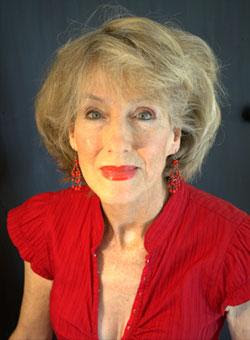Gabrielle Lord
, b. 1946
Gabrielle Lord (b. 1946) is a crime fiction writer born in Sydney. She studied Literature at the University of New England, Armidale. She is best known for her fiction for adults, as well as the Conspiracy 365 series for young adults that included seventeen novels total. In 2002 she received the Ned Kelly Award for Best Crime Novel for her book, Death Delights, and in 2003 was the joint winner of the Davitt Award for Best Crime Novel by an Australian woman for Baby did a bad bad thing.
Sources:
The Author's website (accessed: October 7, 2021).
Wikipedia (accessed: October 7, 2021).
Bio prepared by Charlotte Farrell, University of New England, charlottefarrell@gmail.com
Questionnaire
1. What drew you to writing/working with Classical Antiquity and what challenges did you face in selecting, representing, or adapting particular myths or stories?
When I was about seven or eight, I read the Greek myths and had to ask my mother what this strange word was: ocean I couldn’t ‘sound it out’. I loved that book and read and reread it. I haven’t used mythology really (apart from the Medusa myth in The Medusa Curse) except in a very general way. My 12 book series Conspiracy 365 relies on the hero’s journey – how the boy Cal must leave his mother, (like Theseus) discover what happened to his father and find out who he really is by book 12 all done in a contemporary setting and hidden under an action/thriller story.
2. Why do you think classical / ancient myths, history, and literature continue to resonate with young audiences?
I believe they contain certain central elements that are true such as the need for growth, as in the Theseus myth, the need to know the truth about oneself and the need to overcome obstacles that life throws at us without falling in a heap. We don’t have to clean out the Augean stables nor slay the Minataur, but every life contains hurdles that must be overcome if one is to gain maturity.
3. Do you have a background in classical education (Latin or Greek at school or classes at the University?) What sources are you using? Scholarly work? Wikipedia? Are there any books that made an impact on you in this respect?
Nothing formal. Just the amateur’s love of the subject. I have a large dictionary of myths which I can consult.
4. Did you think about how Classical Antiquity would translate for young readers, especially in Australia?
The great stories almost always contain mythic elements and there are only 8 different plots or so we’re told! Ringing the changes on these is what makes stories interesting and the myths contain everything possible: love, death, infidelity, revenge, apotheosis…
5. How concerned were you with ‘accuracy’ or ‘fidelity’ to the original (another way of saying that might be – that I think writers are often more ‘faithful’ to originals in adapting its spirit rather than being tied down at the level of detail – is this something you thought about)?
I’m not concerned by adherence to the myth – there are too many of them that have different personae involved.
6. Are you planning any further forays into classical material?
I’m having a Sabbatical from writing at the moment but who knows what the future holds?
Prepared by Charlotte Farrell, University of New England, charlottefarrell@gmail.com
Records in database:



